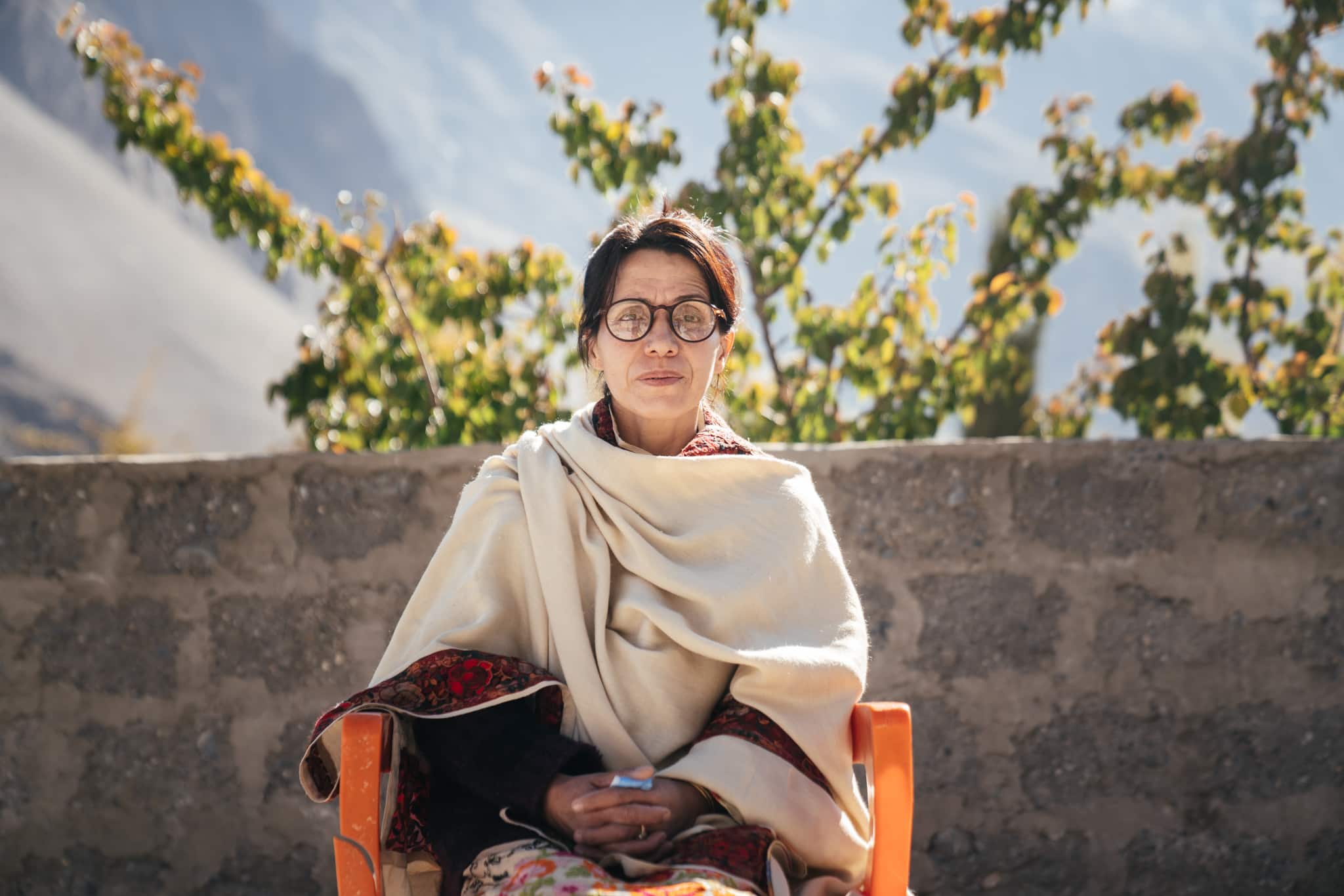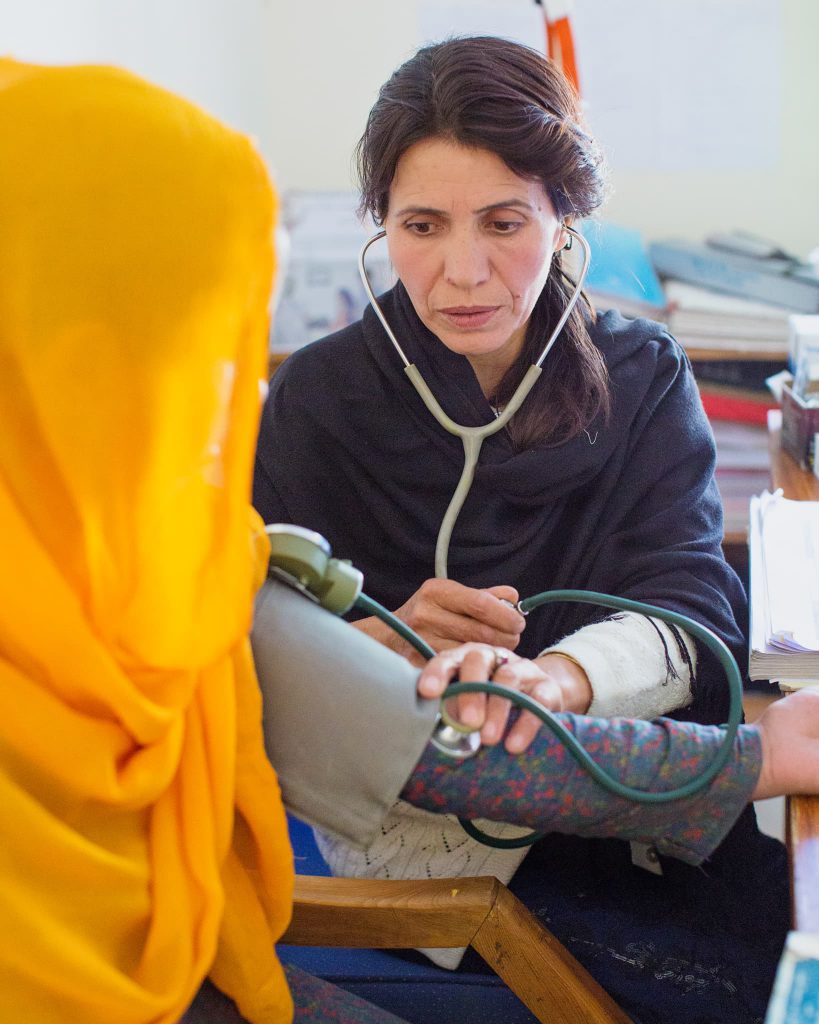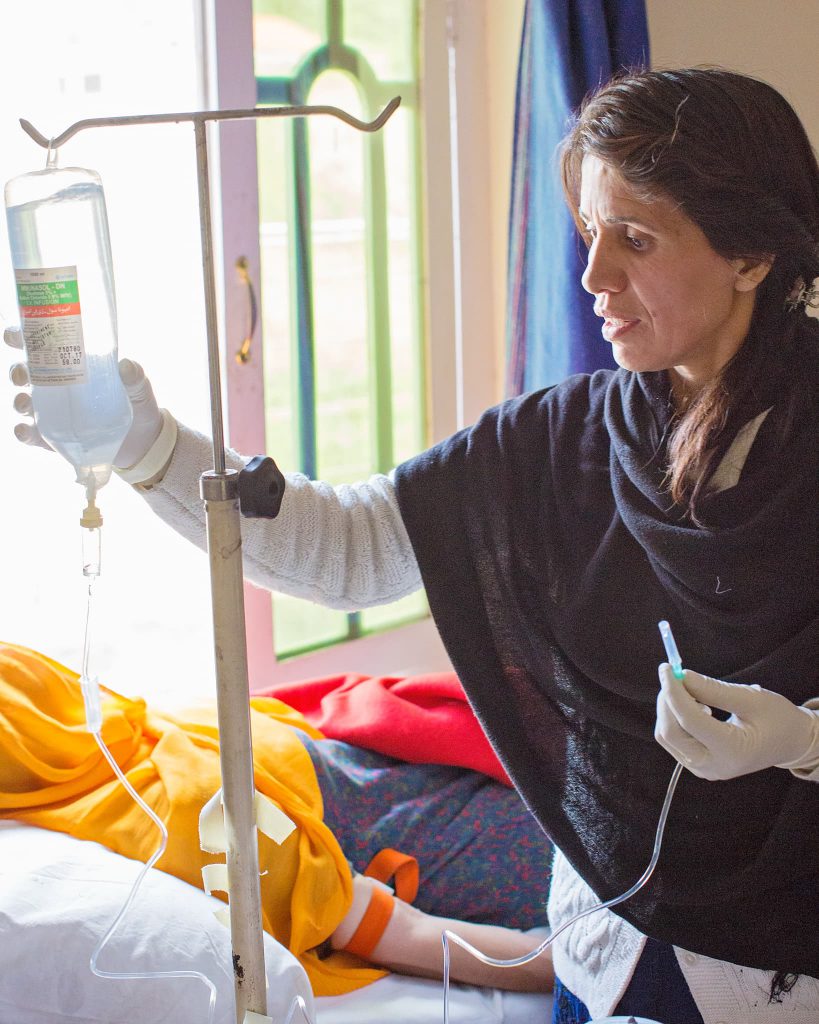A young girl sets out to become the first qualified midwife in a remote village with no ambulance and labour room. She has a tough job to deliver babies at people’s homes at night while carrying her kids on the back.
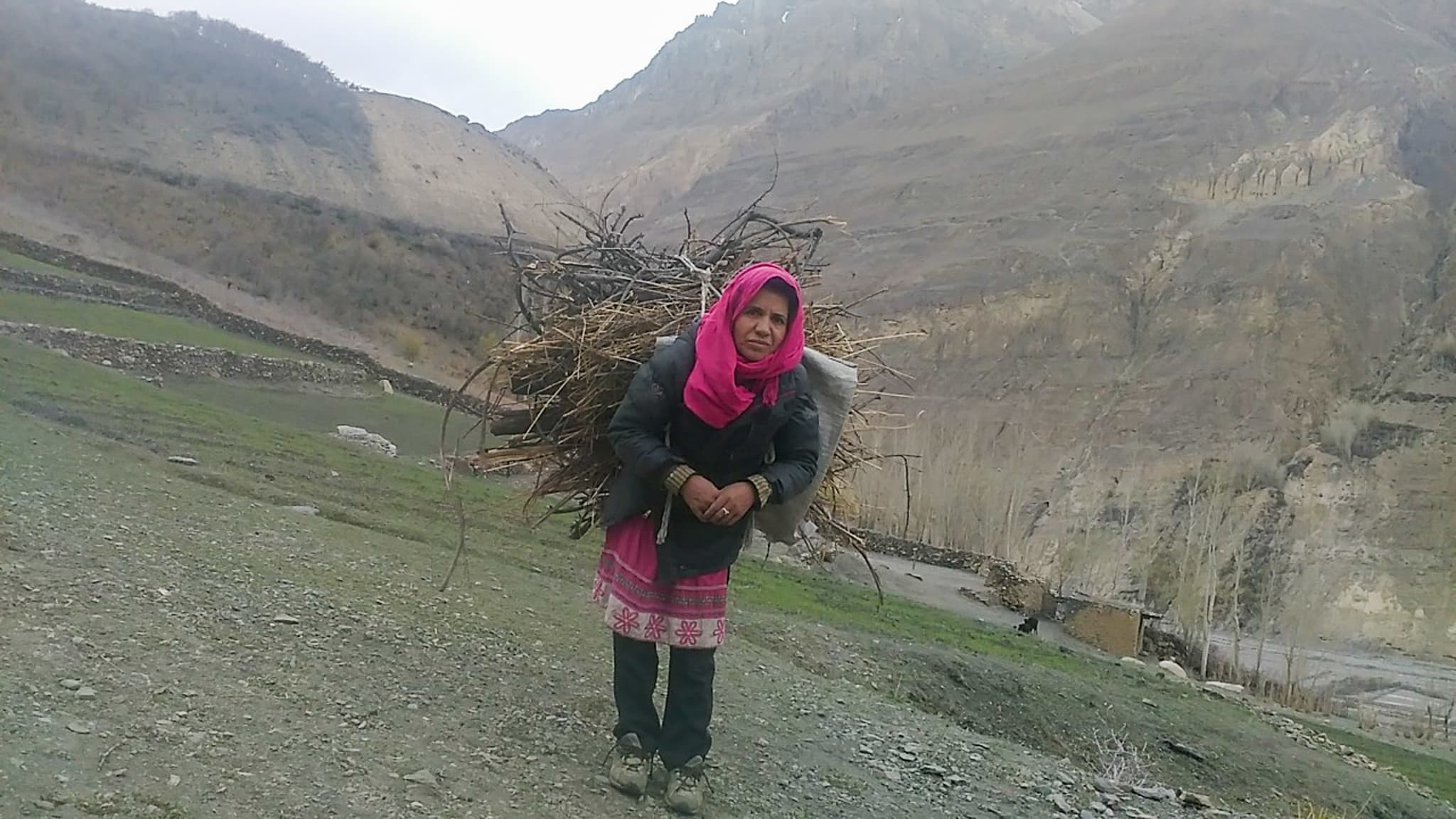
Shimshal is a village of 250 or so houses built with stones and mud. It sits at 3,100m altitude in a valley surrounded by towering Karakoram mountains. Albeit known as the Valley of Mountaineers for twenty-five of its residents have climbed 8,000m mountains, Shimshal is also home to equally extraordinary people outside the field of mountaineering. One such person is Lal Pari.
She was fifteen and a student of the 8th class when she was married off to an 18-year-old Qudrat Ali who later became an elite mountaineer. She continued her studies after the marriage. When she passed middle school, her uncle Daulat Amin, who was also her teacher, gave her books for 9th and 10th class. She self-studied them at home and passed the matriculation exam in Hunza as a private student.
Her other uncle Farman Ullah was a dispenser at Shimshal Healthcare Centre. He told her that their community needed a lady health worker for maternity cases. When she consulted Daulat Amin for advice, he tried to persuade her to become a teacher as their school lacked teaching staff.
“Knowing the kind of problems my mother and other ladies had gone through, I expressed my heartfelt desire to become a health worker.”
Thus, in 1988–89, she received her first training at Aga Khan Health Center in Hunza and started her career as a TBA (Traditional Birth Attendant). In those days, Shimshal Healthcare Centre didn’t have a labour room, and Lal Pari used to perform deliveries at homes. She did this for two years, on an honorary basis.
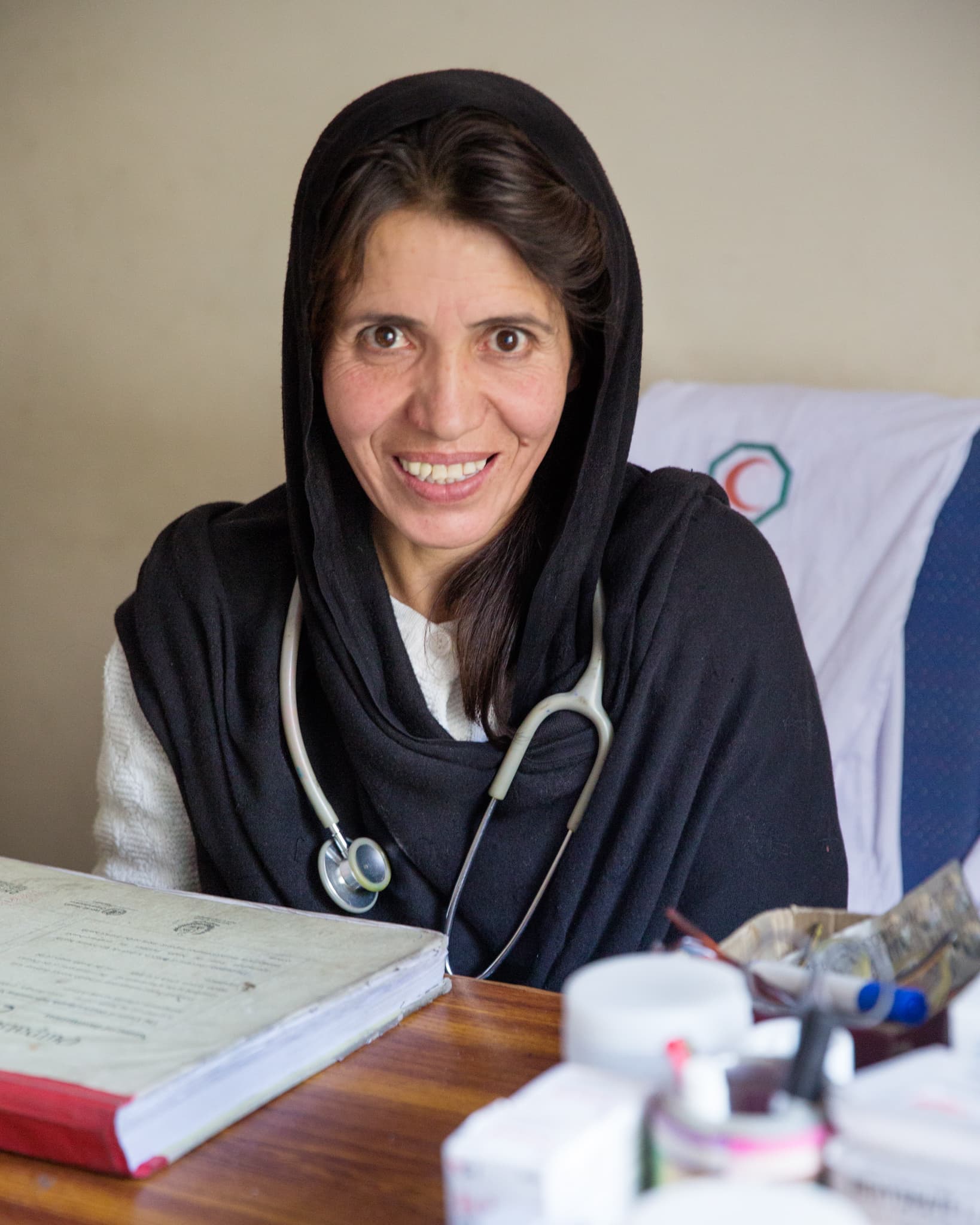
(credit: Rosie Gabrielle)
Realizing the complexity of her job, she underwent a one-year Nursing Assistant course in Gilgit. After working in Shimshal for another six years, she received one-year education from the Midwifery school in Gilgit. Her husband and two little girls also stayed with her during this time. When she was doing night shifts at the hospital, her husband took care of the children.
Back when Lal Pari travelled to other places for training, there was no road link between Shimshal and the Karakoram Highway. Lal Pari and her husband had to walk on a long and rough pony track carrying their kids on their backs.
“It was a tough trek in itself. The additional burden caused so much pain that I used to cry.”
In 2002, she got one more year of education from Peshawar and returned to Shimshal with an LHV & Midwifery diploma, thus becoming the first Lady Health Worker of Shimshal.
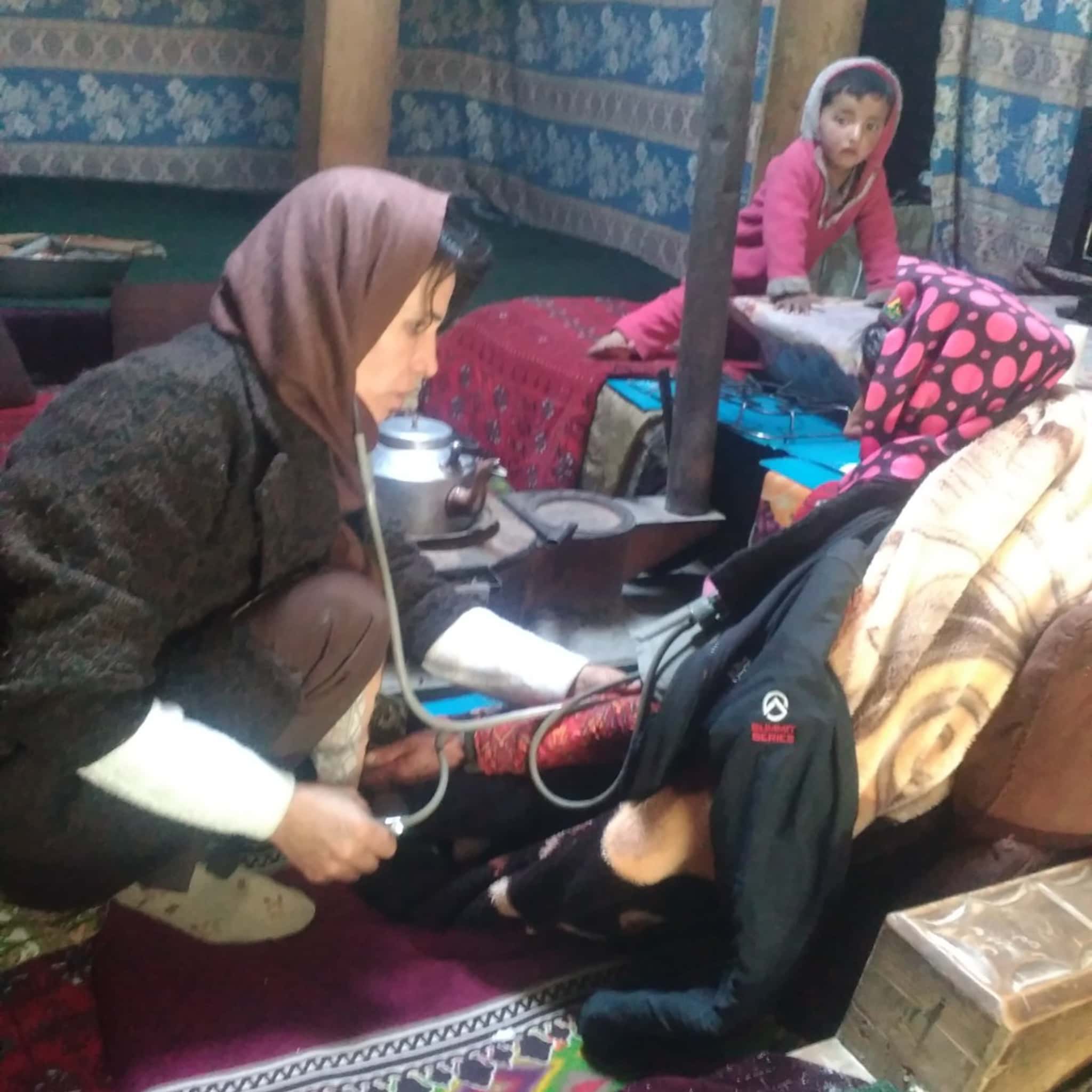
At that time, the medical situation in Shimshal was poor. There was no concept of family planning. Many children were being born. Earlier, a couple of women had died while giving birth.
Lal Pari often had to leave home late at night for childbirths, at times performing two deliveries a night. Her kids were little then. Sometimes, her husband was out for work, and there would be no one to look after them.
“My kids would start crying when they would see me leaving the house. So, I would carry them on my back and go to people’s homes at midnight with the help of a lantern to deliver their babies.”
During the vaccination campaigns, she would go door to door from Khizerabad to Aminabad giving village children polio drops while carrying her kids on the back.
“My main goal has always been to serve humanity, so I sacrificed everything, be it my sleep, comfort, and time, for others. It is my small gift for our community.”
Shimshal Healthcare Centre needed a labour room as performing deliveries at people’s homes with their kids and men around was problematic. In 2010, upon Lal Pari’s proposal, German donors sponsored a new building for the healthcare centre with a labour room in it while her uncle Daulat Amin donated the land. An NGO and district government provided them with delivery beds and other essential equipment. Since then, Lal Pari performed deliveries at her equipped labour room, but for obstruction cases, she has no option other than to refer mothers to Hunza or Gilgit for C-section.
Once, there used to be no ambulance and locals had to rent a private jeep to transport patients, but it was too expensive for most people. Nowadays, the village has got a makeshift ambulance but no permanent driver for it. Whenever there is a need for ambulance service, the health staff has to call one of the local jeep drivers. The ambulance lacks life-support equipment and is not suitable for transporting pregnant mothers in critical conditions on a 3-hour bumpy jeep track.
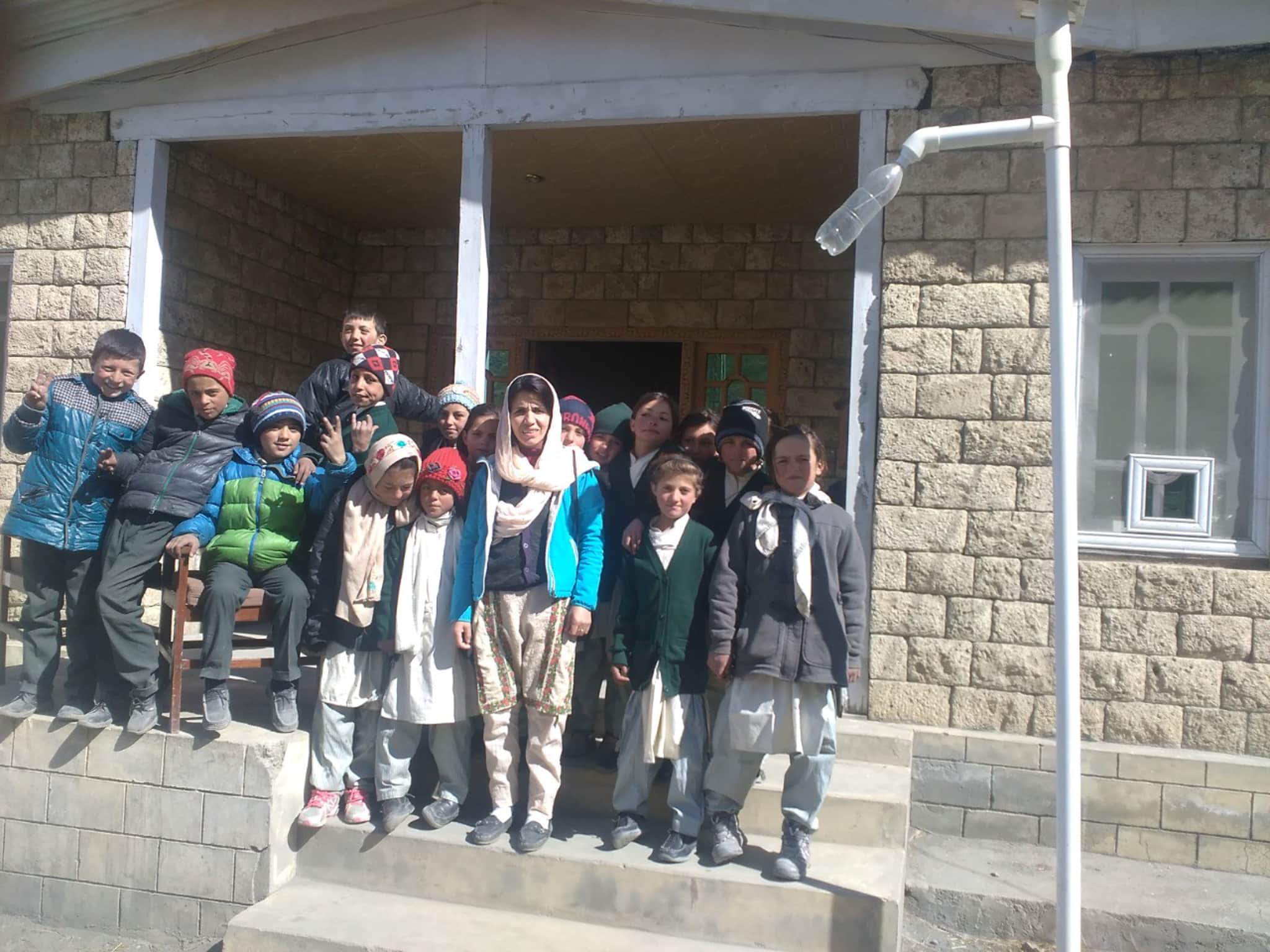
Besides, there is not even a single doctor for a population of over 2,500 in Shimshal Valley. Considering it is also an adventure destination for mountaineers and hard-core trekkers, the valley needs better medical facilities and ambulatory services.
“For critical cases, I need to consult a medical specialist. Though I do have contact numbers of doctors, often they don’t attend calls at night. If we cannot get full-time doctors here, we request them to volunteer their time for 10–14 days, not only to see patients but also to train our staff.”
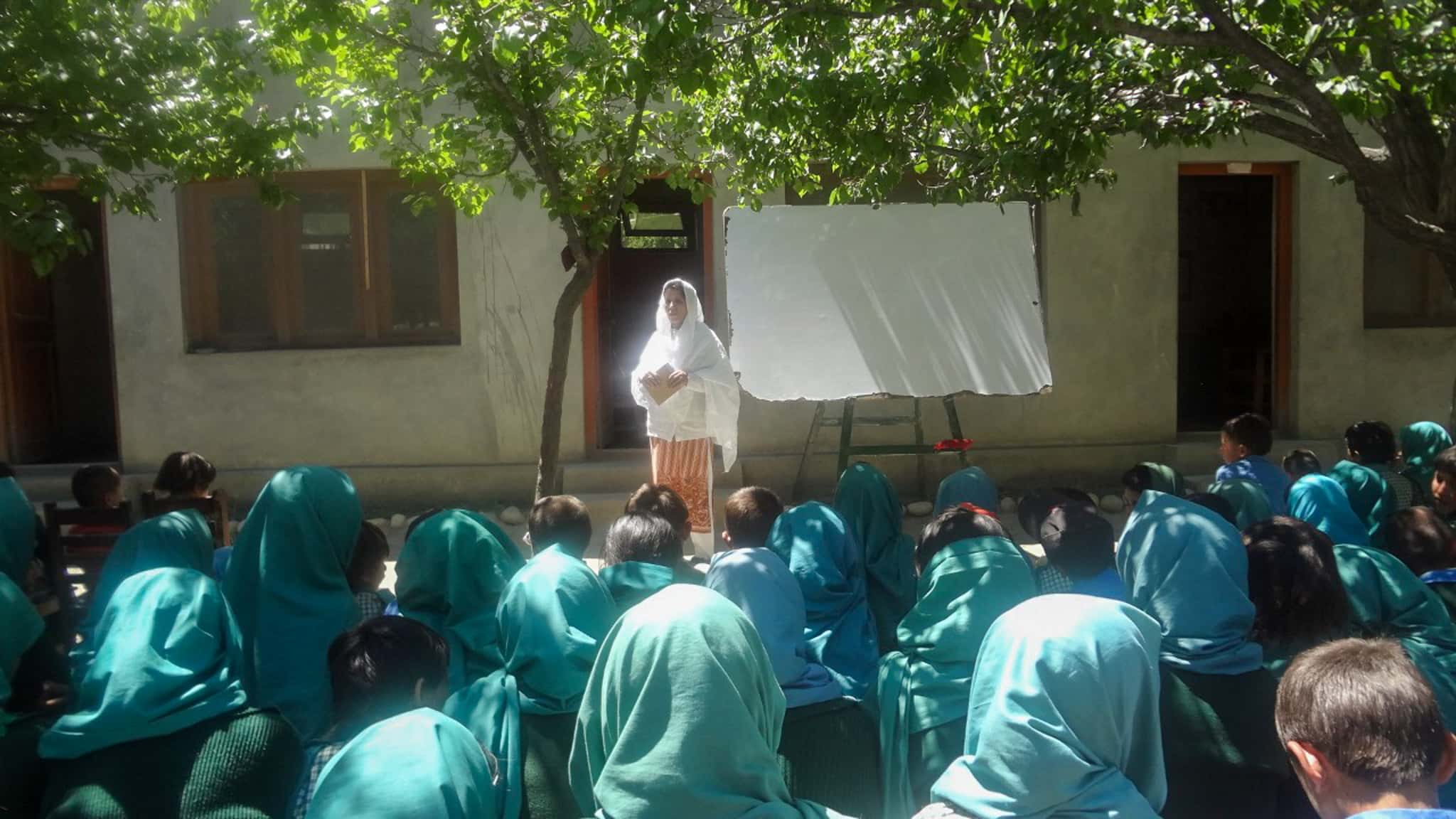
In 2015, Lal Pari’s uncle Farman Ali, who had urged her to become an LHV, retired as a dispenser after 42 years of service, but his post at the healthcare centre remains vacant to date.
“Being a dispenser is a specialized job. We don’t have one here. As a Lady Health Worker, I need a senior dispenser.”
Now, Lal Pari has multiple roles to fill in, from delivering babies to stitching wounds to being dispenser and taking charge of the healthcare centre, all at the same time. Furthermore, she has an official duty till 2 pm but keeps herself available for the community 24/7, and that too without any additional payment. The passion for serving humanity is what drives and defines her.
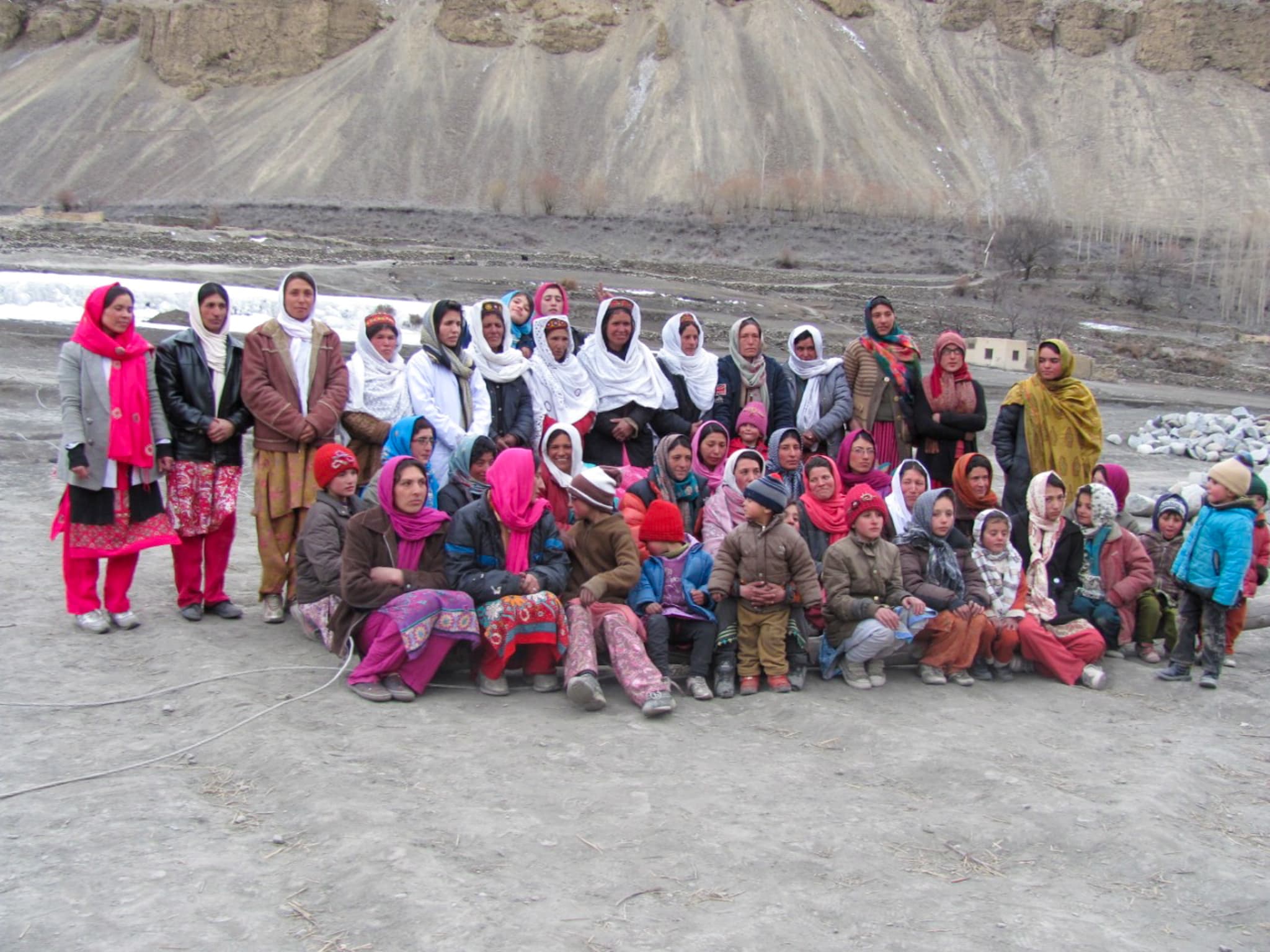
Apart from that, Lal Pari also regularly runs community and school awareness sessions. As it is difficult for her to gather the community, she goes to public and family gatherings and requests 10-15 minutes of their time.
“I crash weddings to inform people about common diseases and infections, precautions, symptoms, and treatment.”
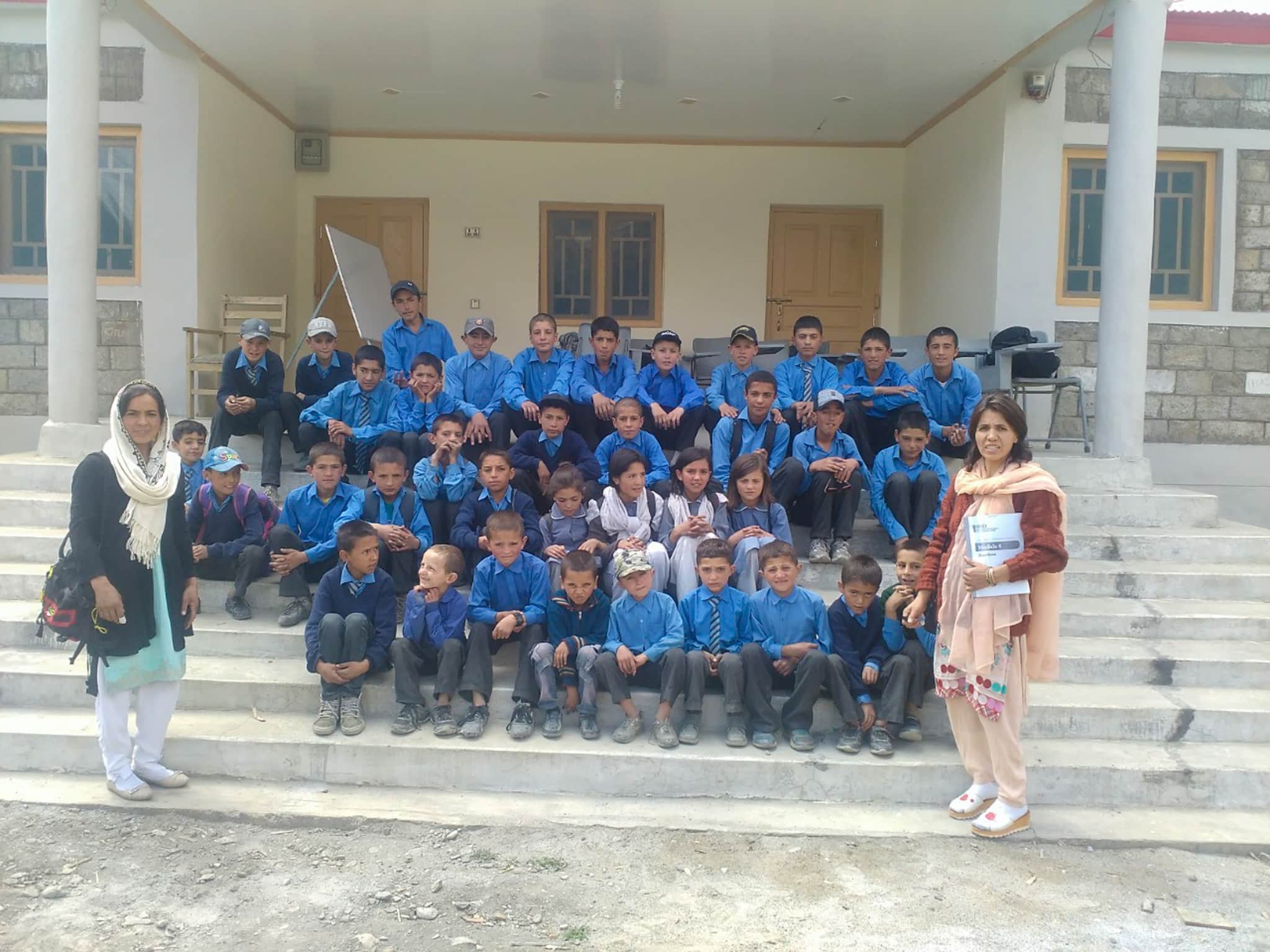
She and her husband saw tough times in their lives. Qudrat was the only son in the family, so he had to get married early. Despite having opportunities to settle somewhere else, they always came back.
“We never thought about leaving Shimshal. It is our home. I am also the only LHV in Shimshal, so I am always concerned about who would look after my community.”
Her daughter Rashma Qudrat completed a Bachelor of Science in Nursing (BScN) and is now doing a house job in AKU Karachi. She is the first person from Shimshal to do BScN.
“When I was little, patients used to visit our home frequently. Seeing my mother treat them at home eventually inspired me to choose nursing as a professional career,” she said.
Rashma got a certificate for an outstanding academic performance at the university. Whenever she is back in Shimshal, she takes time to volunteer for her community.
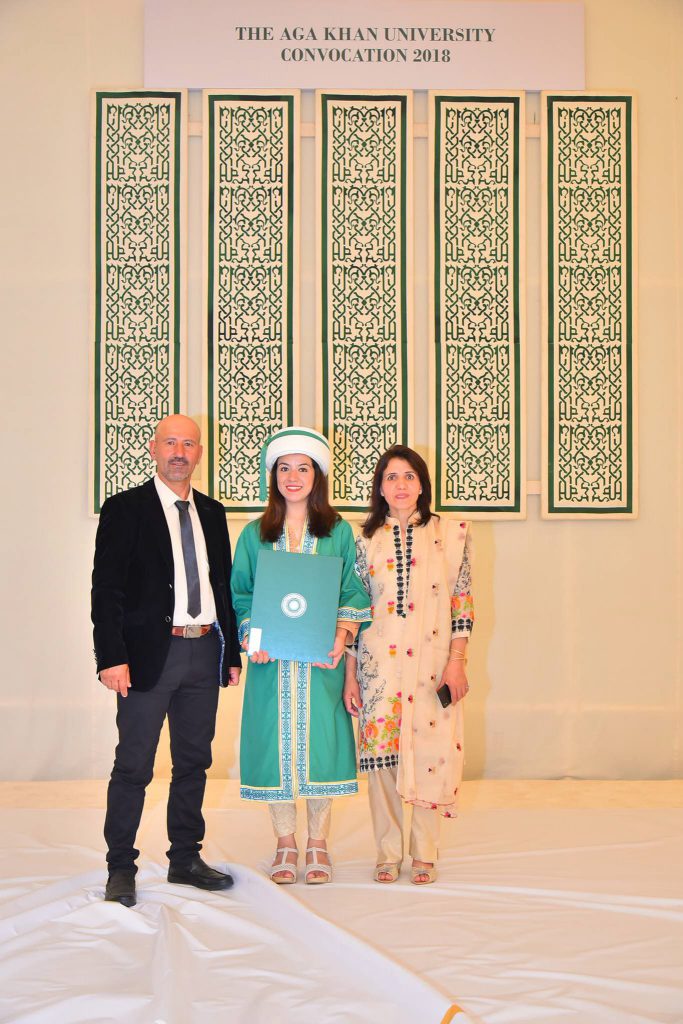
Lal Pari recently finished her 30 years of service. She is the first and only Lady Health Worker of Shimshal. To date, she performed approximately 700 to 800 deliveries, all successful. There was not a single maternal or newborn death.
“I performed most of the deliveries at homes. The kids and mothers turned out safe. It is nothing less than a miracle. Maybe they were lucky, maybe God blessed me, or maybe it was because of the prayers of others.”
Lal Pari’s inspiring story made German author Christiane Fladt write a book about her life. It is called “Wenn Allah nein sagt” (If Allah says no).
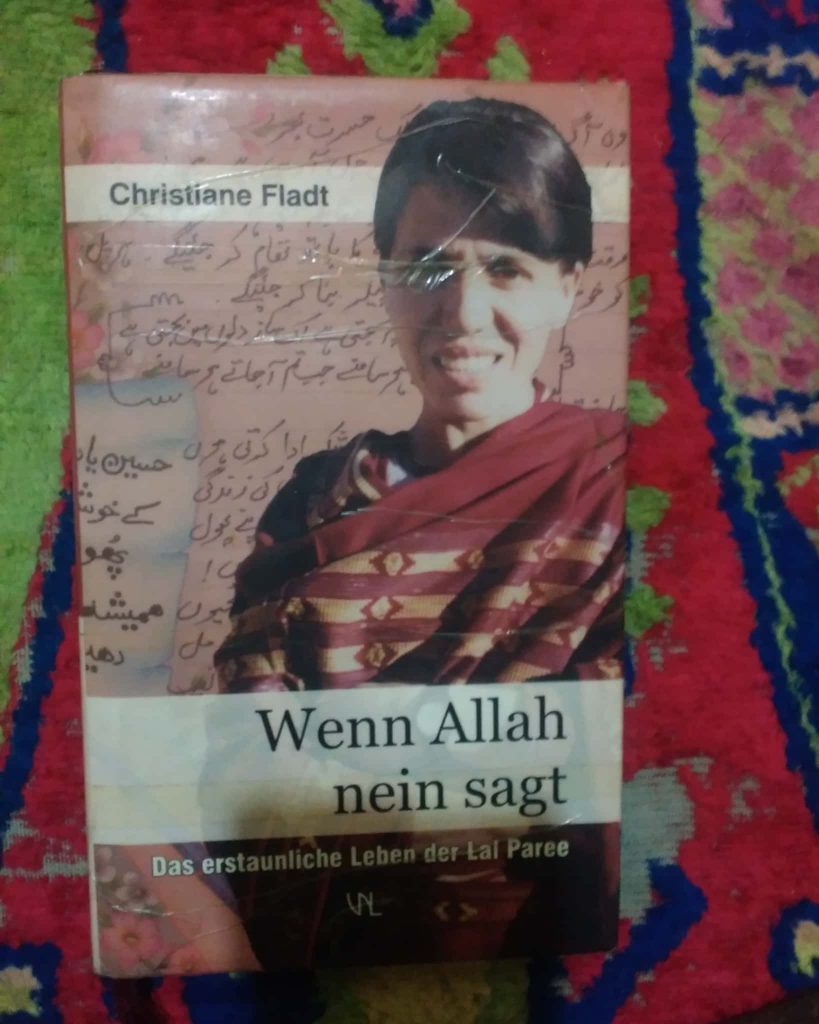
When she gets time from treating patients, household work, and gathering firewood from nearby mountains, Lal Pari also writes poetry in Wakhi. Here are some excerpts of the poems she wrote for her parents, translated from Wakhi to Urdu and English.
“This poem is for my father, Maskeen Baig. He is a great carpenter. He lived a tough life and made a lot of sacrifices for us.”
زندگی كے ہر لمحے میں تیرا انتظار ہے
Zindagi ke har lamhe mein tera intezaar hai
I wait for you in every moment of my life.
میرے دِل اور گھر میں تیرے دم سے ہی بہار ہے
Mere dil aur ghar mein tere dam se hi bahaar hai
My heart and my home blooms because of you.
کہیں دھوپ کہیں چھاؤں
Kahin dhoop kahin chhaon
Whether it’s sunshine or shade,
کہیں پہاڑ کہیں گلیشیر
Kahin pahaad kahin glacier
Be it mountains or glaciers,
تجھے پرواہ نہیں اپنی زندگی کی
Tujhe parwah nahi apni zindagi ki
you are not concerned about your life.
میری خاطر تو کتنا ہونہار ہے
Meri khatir tu kitna honehaar hai
How talented you are for me !
“When my mother, Bibi Nasreen, died, it was a huge shock for me. I had become a mother at that time. I realized how much pain and hardships mothers have to go through because of their kids. I dedicate this poem to all the mothers.”
تو جان تو جہاں تو گلستان ہے میری ماں
Tu jaan tu jahan tu gulistan hai meri maa
You are my life, my universe, and my rose garden, my mother.
تن من کو سجایا میرے ارمان ہے میری ماں
Tan man ko sajaya mere armaan hai meri maa
You enrich my body and soul. You are my desire, my mother.
تاج ہے میرے سَر کا ماں ، محتاج تیری ہوں
Taj hai mere sar ka maa, mohtaj teri hun
You are my crown. I am dependent upon you.
میں ساز تیری ، تو میری ہمراز ہے میری ماں
Mein saaz teri, tu meri hamraaz hai meri maa
I am your instrument, and you are my confidant, my mother.
. . . . . . . . . . . . . . . .
Please contribute to our campaign for mountain people: https://gogetfunding.com/support-mountain-people/



